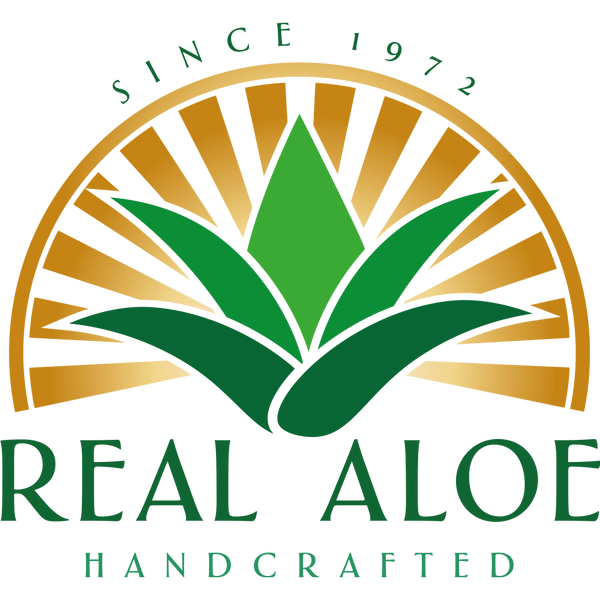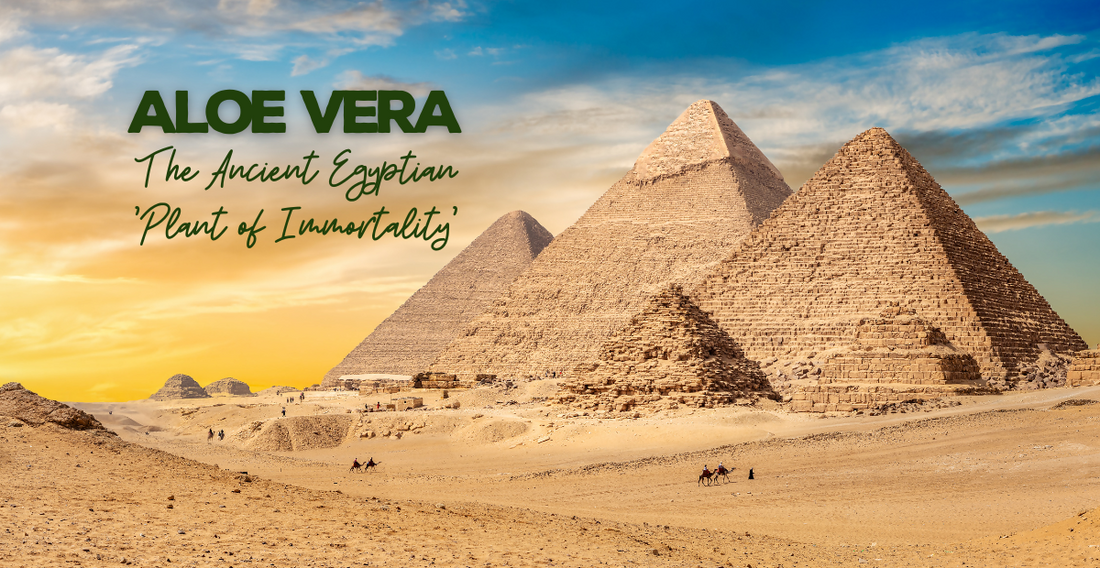Aloe Vera is a succulent plant that has been revered for centuries for its many healing properties. From the ancient Egyptians to modern-day consumers, people have recognized the remarkable benefits of this "plant of immortality". The aloe Vera plant has a long and fascinating history, with its use dating back over 6,000 years to ancient times. In this article, we will explore the history of Aloe Vera and its medicinal benefits, as well as how this amazing plant has influenced modern medicine.
Aloe Vera Known As ‘The Plant Of Immortality’
The Aloe Vera plant is widely known for its remarkable healing properties, from treating skin burns to acne. But do you know its rich history? The Aloe Vera plant has a long and fascinating history that dates back over 6,000 years, and it all started with the ancient Egyptians who called it the “plant of immortality”.
Aloe Vera, or Aloe Barbadensis, is a succulent plant that has thick leaves and very short stems. It’s one of 420 plants in the genus Aloe, but only one true Aloe Barbadensis. The plant thrives in tropical, semi-tropical, and arid climates worldwide and is speculated to have originated in the Arabian Peninsula. Today, farmers grow Aloe Vera on every continent, and it is widely cultivated for commercial products, mainly as a topical treatment.
The leaves of the Aloe Vera plant contain a slimy tissue that stores water, which is what makes the leaves thick. This slimy water-filled tissue is what we know as Aloe Vera gel, which contains most of the plant’s beneficial nutrients, including antioxidants, vitamins, minerals, enzymes, amino acids, and salicylic acid. Aloe latex, the juice that seeps from the plant when you cut it, is also useful as it has strong laxative properties.
Aloe Vera Has Been Used For Healing For Thousands of Years
A brief timeline of the Aloe Vera plant reveals its importance over the centuries. The plant’s benefits first appeared on a Mesopotamian tablet in 2100 BC, and an Egyptian text from 1550 BC describes its medicinal benefits and provides instructions on how to use it for both internal and external symptoms. The Greeks used Aloe Vera to treat wounds, hair loss, and other issues in 70 AD. The first mention of Aloe Vera in the English language was in 1655, and by 1930, physicians were using Aloe Vera to treat radiation dermatitis. Today, people in many countries use Aloe Vera for various internal and topical uses.
The ancient Egyptians regarded the Aloe Vera plant as the sacred plant of the “blood”, which held the secrets to beauty, health, and longevity. They used it to measure a person’s wealth, and the amount of aloe a man brought as an offering to the deceased pharaohs indicated his wealth. They used Aloe Vera for treating burns, healing wounds, and reducing fever. The Papyrus Ebers, an Egyptian document from circa 1550 B.C., is the first detailed written record of Aloe Vera’s medicinal value. Egyptian queens like Nefertiti and Cleopatra used the plant for beauty, while others used it as a funeral gift for pharaohs. The Egyptians even embalmed the dead with Aloe Vera because of its antibacterial and antifungal properties. They believed that if they could stop or at least slow down the body’s decomposition process, they could achieve eternal life on a spiritual and physical level.
The ancient Egyptians were pioneers of modern medicine, and their use of Aloe Vera influenced others to start using the plant. While Aloe Vera is not a medical treatment, it has proven to be effective in treating various conditions. With many new studies coming along, we’ll learn even more about the ancient Egyptian plant of immortality and its remarkable healing properties.
Here are 15 Healing Benefits of Aloe Vera
- Aloe Vera contains antioxidants that help fight free radicals in the body.
- It has anti-inflammatory properties that can reduce swelling and redness.
- Aloe Vera can help moisturize the skin and improve its elasticity.
- It may help improve digestion and alleviate constipation.
- Aloe Vera gel can help heal sunburns and other minor burns.
- Aloe Vera may help reduce the appearance of fine lines and wrinkles.
- It can help soothe and alleviate skin irritations such as eczema and psoriasis.
- Aloe Vera may help reduce dandruff and promote healthy hair growth.
- It can help improve oral health and reduce gum inflammation.
- Aloe Vera may help boost the immune system.
- It can help reduce the severity and frequency of acne breakouts.
- Aloe Vera may help alleviate symptoms of acid reflux and heartburn.
- It can help reduce the risk of infections and promote wound healing.
- Aloe Vera may help lower blood sugar levels in people with diabetes.
- It can help alleviate menstrual cramps and other menstrual symptoms.

Summary
The Aloe Vera plant has truly stood the test of time, with its use dating back thousands of years to ancient civilizations. Today, Aloe Vera remains a popular natural remedy for a wide range of health conditions, thanks to its numerous beneficial properties. From treating burns to promoting healthy skin, Aloe Vera continues to be a versatile and valuable plant. As new studies and research continue to uncover more about its benefits, we can look forward to discovering even more about this remarkable "plant of immortality".

